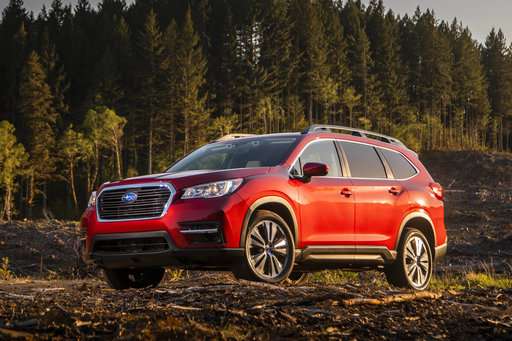
That's especially true if your preferences are flexible and you can live without some creature comforts. But while a used model may get you more features for your money, you can still find plenty of cheap, affordable new cars that hold appeal.

That's a figure that will send many shoppers running for the used car lot. "However, for the time being, there are plenty of new-vehicle buyers willing to pay higher prices and be less selective.The average transaction price of today's new car is about $37,000. "Shoppers waiting for Labor Day sales events with substantial discounts on outgoing model-year vehicles will be frustrated by the lack of markdowns and choice of vehicles," said King. The main takeaway is that is that it continues to be a very difficult (and expensive) time to buy a car - even during periods that have traditionally been known for great promotional deals. After surpassing $700 in July, the average monthly finance payment for a new car reached $716, an increase of $78 (12.2%) compared to last August. Rising interest rates, according to King, have also pushed monthly loan payments to all-time highs. New car retailers are on target to walk away with a record-high profit of $4,976 per vehicle lately. “The lack of inventory, coupled with strong demand, continues to allow manufacturers to walk back discounts,” said King. As a result, buyers have fewer choices and auto dealerships are able to charge top dollar for the cars they do have available for sale. Power, said that overall auto sales are down because dealerships simply do not have enough cars to sell. Thomas King, president of the data and analytics division of J.D. Supply and demand issues are at the heart of the surge in new car prices. According to the most recent data from Kelley Blue Book, the average new car purchased in July sold for $48,182 - also a record high. Other estimates using different data say that car buyers have been paying even higher prices. Power and the auto market intelligence agency LMC Automotive estimated that the average retail price of a new car sold in August was $46,259 - an 11.5% increase from a year ago and the highest on record. Hawaii Alaska Florida South Carolina Georgia Alabama North Carolina Tennessee RI Rhode Island CT Connecticut MA Massachusetts Maine NH New Hampshire VT Vermont New York NJ New Jersey DE Delaware MD Maryland West Virginia Ohio Michigan Arizona Nevada Utah Colorado New Mexico South Dakota Iowa Indiana Illinois Minnesota Wisconsin Missouri Louisiana Virginia DC Washington DC Idaho California North Dakota Washington Oregon Montana Wyoming Nebraska Kansas Oklahoma Pennsylvania Kentucky Mississippi Arkansas Texas Protect Your Car Today! New car prices still on the riseĮven as the used car market seem to be past its peak, new car prices are reaching all-new record highs.Ī recent report from the consumer research firm J.D.

That being said, much like last Labor Day, this year's holiday weekend will be a rough time to try to score true deals on cars, particularly for shoppers looking to buy new. "Car shoppers can't expect to find anything close to the doorbuster bargains of pre-pandemic Labor Day sales, but they can at least look forward to used car prices softening across the board heading into the holiday weekend." "Although these price drops are not earth-shattering, they should be a welcome reprieve for consumers compared to the continued higher cost of new car purchases or leases,” Jessica Caldwell, Edmunds' executive director of insights, said in a new release. Edmunds says this is a trend consumers can expect to continue into the holiday weekend and beyond. Previous data indicates that average prices for all used cars have fallen for four months in a row. The average transaction price for 3-year-old vehicles was $31,302 in July, a 4.6% decrease from their height of $32,828 in January. Consumers hoping for deals on new cars are mostly out of luck over Labor Day weekend, but there's some good news: The market for used vehicles is finally becoming more affordable.Ī report released Wednesday from the automotive research firm Edmunds found that Americans who have put off purchasing a used car in the recent past due to soaring prices now have a better chance of paying a little less.


 0 kommentar(er)
0 kommentar(er)
